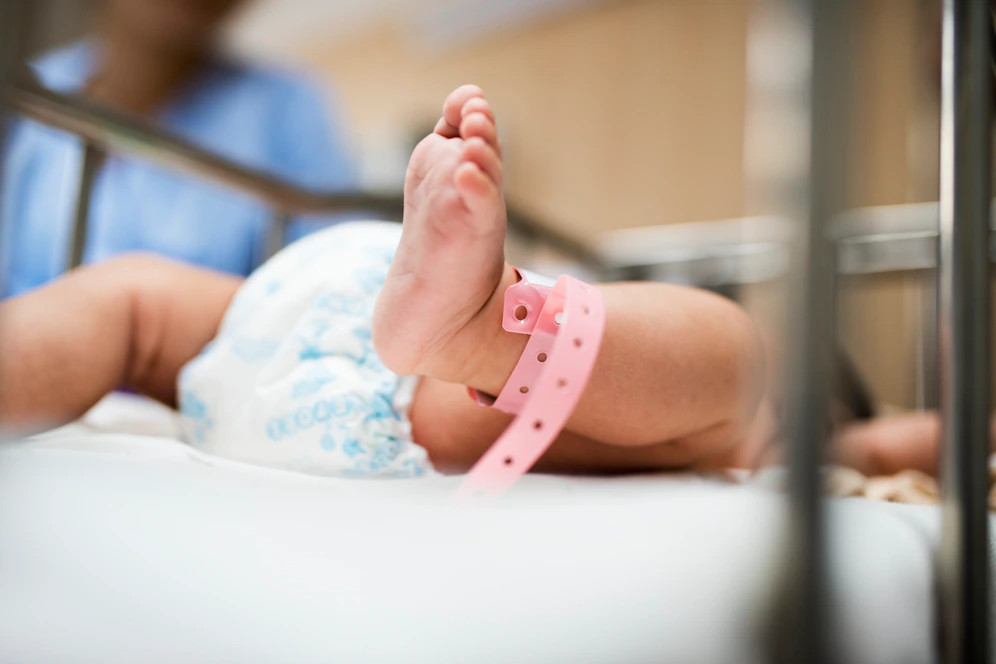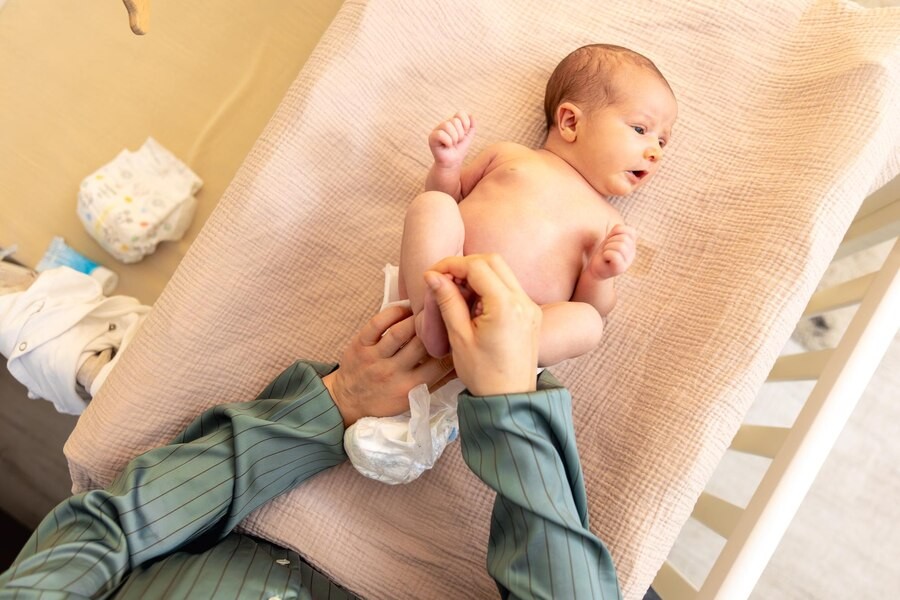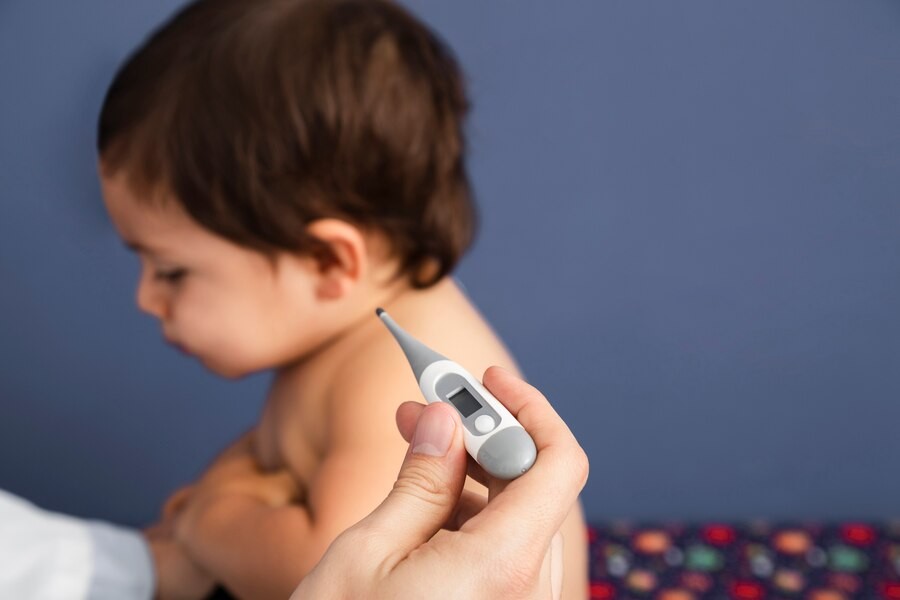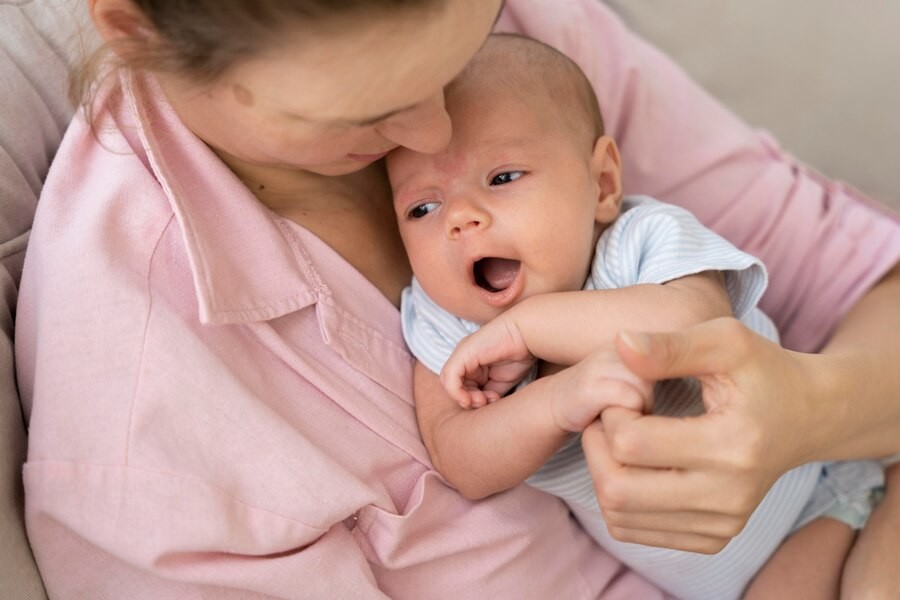As a new parent, you may feel anxious about your child's health and other issues. While it's true that several baby health issues are rather common and usually not life-threatening, it's still important for parents to be able to detect warning signs in their children and seek medical treatment immediately.
What are the warning signs your baby needs to see a doctor?
Babies, in contrast to children older than five, do not yet have the language skills necessary to communicate the distress and distressing feelings they experience when sick. Consequently, there are situations when parents fail to notice the symptoms that their child is unhealthy.
In general, symptoms such as a high fever, a lack of appetite, an irritable baby, or a weak baby are an early indication of a baby's health concerns. In addition, there are certain indicators that indicate that your infant requires immediate medical attention.
Newborn
Newborn babies are susceptible to disease due to their immature immune systems. The baby's metabolic system is also in the process of development, which means that the baby may also experience a variety of health problems. Signs to be aware of in neonates include:
- Within the first two days following birth, a baby will not defecate
- The area surrounding the navel is red and swollen
- Foul stench, pus, and bleeding in the umbilical cord
- Redness, discharge or bleeding on the penis
- Your child drinks less than six times in twenty-four hours and lacks hunger
- Movement of sucking the breasts gets weaker
- Three to four hours after the last feeding, the baby does not wake up to feed
- Eyes, chest, stomach, arms, and legs turn yellow
- Redness or swelling of the eyes and discharge from the eyes
- A baby's palm displays the protruding fontanelle
- The baby is running a high temperature, more than 38º Celsius
If you observe any of the symptoms listed above, it is important that you immediately consult with a doctor regarding your child's health.
General babies
Generally, the endurance of babies is better than that of newborn babies before they reach the age of three months. Despite this, parents are advised to be aware of any indications that their child may be experiencing major health issues.
Respiratory distress
Respiratory issues may suggest that your child has contracted Covid-19, a cold, or another viral infection. Common symptoms include a runny nose, cough, decreased appetite, body weakness, sneezing, and a brief cessation of respiration. It is important that you promptly consult with a doctor if your baby is experiencing difficulty breathing.
Fever
Babies often experience fever as a symptom of inflammation. In most cases, a high temperature does not indicate how serious your child's disease is. However, if your child is less than three months old and has a temperature greater than 38º Celsius, you should seek medical attention without delay.
Consult your doctor immediately if a fever exceeding 38º Celsius persists for several days and is accompanied by symptoms such as diarrhea, dehydration, a rash, and wheezing in babies more than three months of age.
Dehydration
Dehydration in babies can also lead to health complications. Indicators of an infant experiencing dehydration that should be monitored include:
Dehydration in babies can also cause health problems. Signs of a dehydrated baby to watch out for include:
- Dry diaper
- Dark-colored urine
- Dry and sticky lips
- Cry without shedding tears
- Sunken eyes
Changes in your baby's crying pattern, such as less frequent or weaker crying or the opposite, more intense and challenging-to-calm screaming, can also be a sign of changes in their health. While this may suggest that the infant is suffering from colic, it may also point to more serious problems.
It is important for all parents to identify the indicators of a normal baby's condition and those that are not. If you notice the baby has unusual symptoms and other concerns, you can either visit a doctor or make use of the consultation features that are available in the Ai Care application by downloading the Ai Care application from the App Store or Play Store.
Looking for more information about pregnancy, breastfeeding, and the health of women and children? Click here!
- dr Nadia Opmalina
WebMD Editorial Contributors. (2023). When Should I Call My Newborn’s Doctor?. Available from: https://www.webmd.com/parenting/baby/when-call-newborns-doctor#
Cleveland Clinic. (2020). When to Call the Doctor for Your Newborn Baby. Available from: https://health.clevelandclinic.org/when-to-call-the-doctor-for-your-newborn-baby/
Baby Center. When to Call the Pediatrician for Your Baby. Available from: https://www.babycenter.com/baby/newborn-baby/when-to-call-the-doctor-for-your-newborn_10345674












